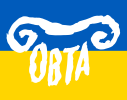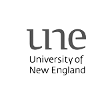Susan Deacy and Making Classics Better
The Department of Classics at Reading invites you to its weekly Summer 2021 online seminar series, on the theme of Making Classics Better. In this accessible and inclusive online environment we welcome a stellar group of speakers from as close as Roehampton and as far as Melbourne to address issues that hamper inclusivity in Classics and/or explore means of promoting diversity in the study of antiquity more broadly. This theme relates to the work of many of our colleagues and follows on a successful series of workshops on Inclusive Classics coorganised by our Joint Head of Department, Prof. Barbara Goff, as noted in on our Department Blog in 2020.
Wednesdays from 16:00 to 17:30 (UK time)
To join, contact Prof. Amy Smith: a.c.smith@reading.ac.uk
28 April: Susan Deacy (Roehampton), What Makes Classical Myth an Ideal Topic for Autistic Children?
5 May: Louise Hitchcock (Melbourne), Covid+Collapse
12 May: Arlene Holmes-Henderson (KCL), Collaboration in UK Classics Education: Reflecting on Ambitions and Realities
19 May: Ellen Adams (KCL), Disability Studies and the Classical Body: The Forgotten Other
26 May: Holly Ranger (SAS), Subverting the Classics? White Feminism and Reception Studies
2 June: Patrice Rankine (Richmond), TBA
Susan Deacy: What Makes Classical Myth an Ideal Topic for Autistic Children?
Autistic people can have rich imaginative lives – contra one of the “myths” of autism, perpetuated not least because it can be hard for an autistic person to communicate feelings and desires. In this paper, Susan Deacy will set out how and why classical myth can “speak” to autistic children, and engage the imaginations of autistic children. She will focus especially on a set of lessons she is developing based on stories about Hercules – a figure who can exemplify particularly well what it can be like to negotiate the world as an autistic person – as part of the European Research Council-funded project Our Mythical Childhood and the ACCLAIM(Autism Connecting with Classically-Inspire Mythology) Network.








